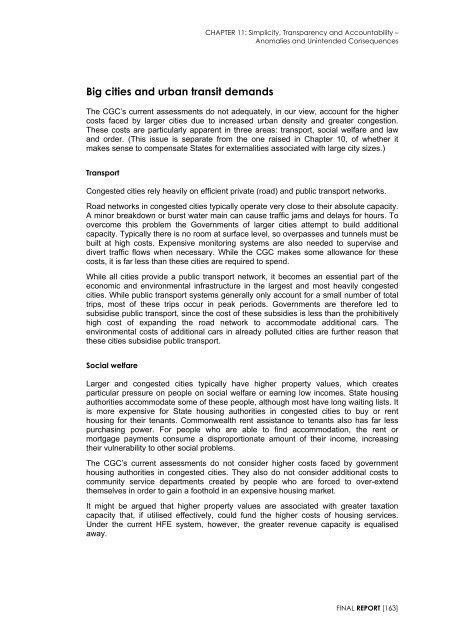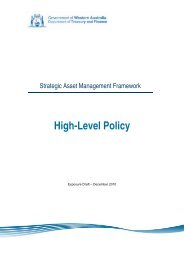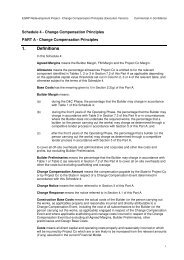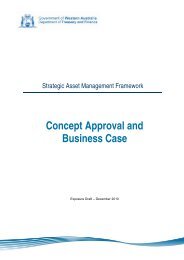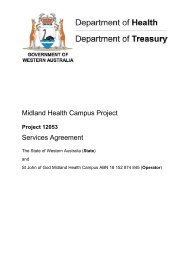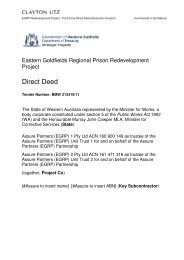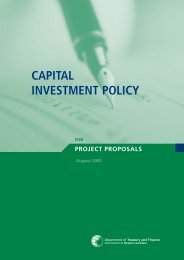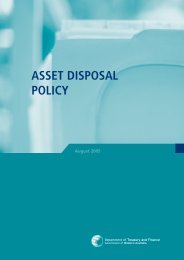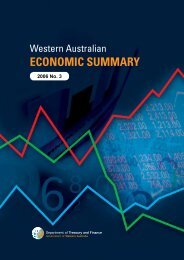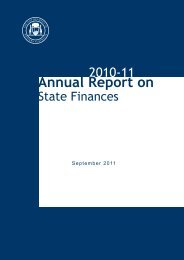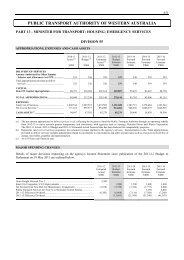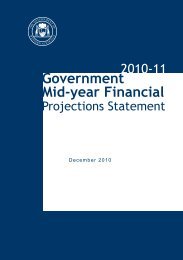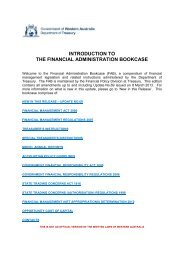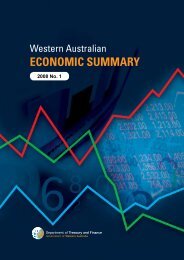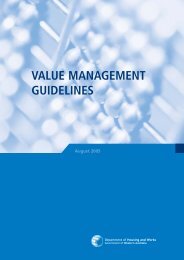Garnaut Fitzgerald Review of Commonwealth-State Funding
Garnaut Fitzgerald Review of Commonwealth-State Funding
Garnaut Fitzgerald Review of Commonwealth-State Funding
You also want an ePaper? Increase the reach of your titles
YUMPU automatically turns print PDFs into web optimized ePapers that Google loves.
CHAPTER 11: Simplicity, Transparency and Accountability –<br />
Anomalies and Unintended Consequences<br />
Big cities and urban transit demands<br />
The CGC’s current assessments do not adequately, in our view, account for the higher<br />
costs faced by larger cities due to increased urban density and greater congestion.<br />
These costs are particularly apparent in three areas: transport, social welfare and law<br />
and order. (This issue is separate from the one raised in Chapter 10, <strong>of</strong> whether it<br />
makes sense to compensate <strong>State</strong>s for externalities associated with large city sizes.)<br />
Transport<br />
Congested cities rely heavily on efficient private (road) and public transport networks.<br />
Road networks in congested cities typically operate very close to their absolute capacity.<br />
A minor breakdown or burst water main can cause traffic jams and delays for hours. To<br />
overcome this problem the Governments <strong>of</strong> larger cities attempt to build additional<br />
capacity. Typically there is no room at surface level, so overpasses and tunnels must be<br />
built at high costs. Expensive monitoring systems are also needed to supervise and<br />
divert traffic flows when necessary. While the CGC makes some allowance for these<br />
costs, it is far less than these cities are required to spend.<br />
While all cities provide a public transport network, it becomes an essential part <strong>of</strong> the<br />
economic and environmental infrastructure in the largest and most heavily congested<br />
cities. While public transport systems generally only account for a small number <strong>of</strong> total<br />
trips, most <strong>of</strong> these trips occur in peak periods. Governments are therefore led to<br />
subsidise public transport, since the cost <strong>of</strong> these subsidies is less than the prohibitively<br />
high cost <strong>of</strong> expanding the road network to accommodate additional cars. The<br />
environmental costs <strong>of</strong> additional cars in already polluted cities are further reason that<br />
these cities subsidise public transport.<br />
Social welfare<br />
Larger and congested cities typically have higher property values, which creates<br />
particular pressure on people on social welfare or earning low incomes. <strong>State</strong> housing<br />
authorities accommodate some <strong>of</strong> these people, although most have long waiting lists. It<br />
is more expensive for <strong>State</strong> housing authorities in congested cities to buy or rent<br />
housing for their tenants. <strong>Commonwealth</strong> rent assistance to tenants also has far less<br />
purchasing power. For people who are able to find accommodation, the rent or<br />
mortgage payments consume a disproportionate amount <strong>of</strong> their income, increasing<br />
their vulnerability to other social problems.<br />
The CGC’s current assessments do not consider higher costs faced by government<br />
housing authorities in congested cities. They also do not consider additional costs to<br />
community service departments created by people who are forced to over-extend<br />
themselves in order to gain a foothold in an expensive housing market.<br />
It might be argued that higher property values are associated with greater taxation<br />
capacity that, if utilised effectively, could fund the higher costs <strong>of</strong> housing services.<br />
Under the current HFE system, however, the greater revenue capacity is equalised<br />
away.<br />
FINAL REPORT [163]


